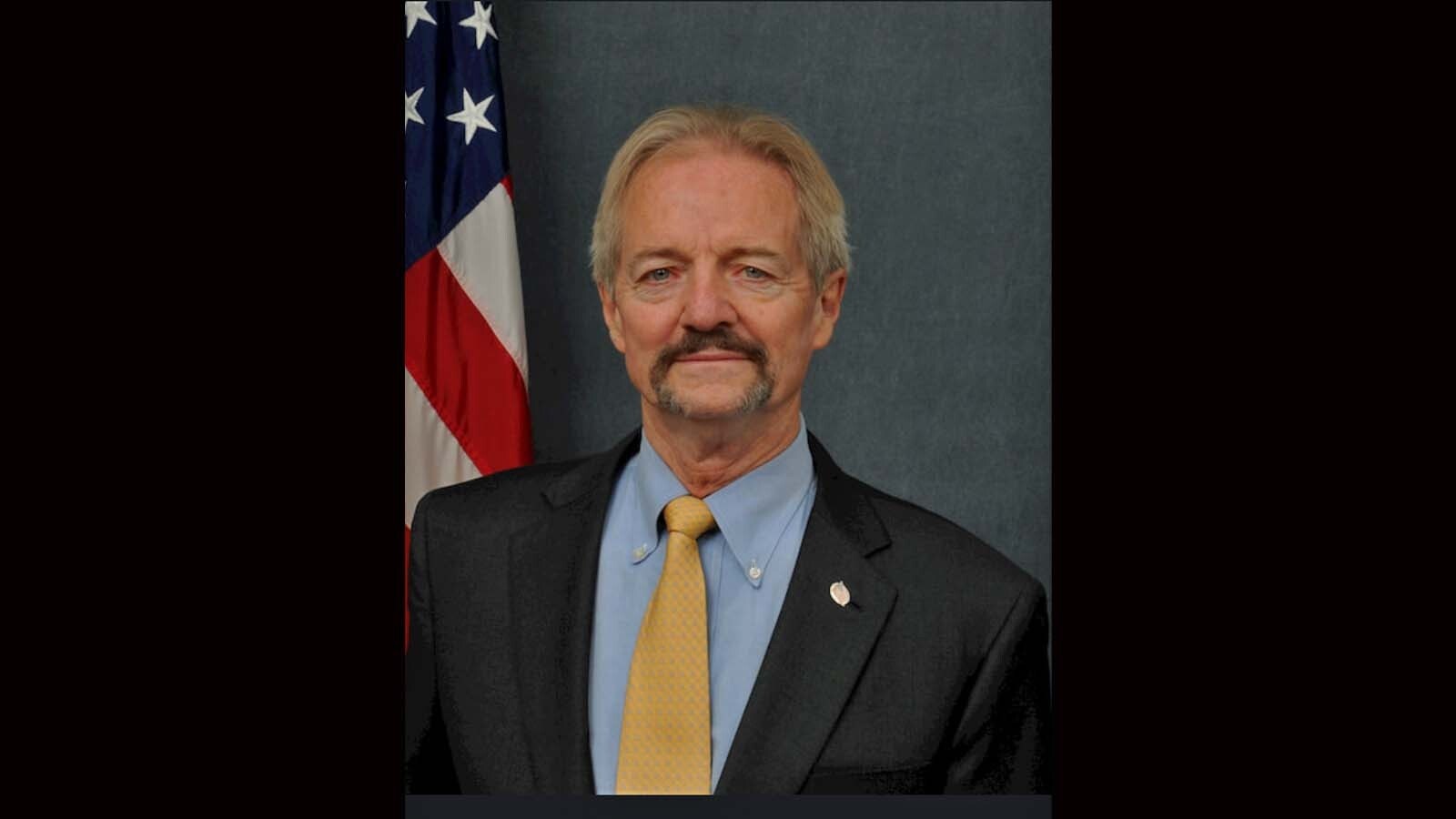By William Perry Pendley, guest columnist
Mr. Pendley, a Wyoming native, was Deputy Director, Policy and Programs, of the Bureau of Land Management during the Trump administration.
With rioting continuing in cities across the country, dangerous criminals and coyotes flooding across our southern border, and the Biden administration and Democrats questioning the loyalty of those who make up the thin blue line between anarchy and a civil society, I think daily of the law enforcement officers (LEOs) I led at the Bureau of Land Management (BLM).
Within days of arriving in July of 2019, I got an introduction to their often-dangerous jobs as I watched Secretary of the Interior David Bernhardt honor two Rangers for their brave and by-the-numbers response to a deadly encounter on a deserted mesa in western Colorado. Later, I saw their body-cam footage and marveled at their situational awareness, instantaneous response, and consummate professionalism.
In my travels to BLM state, district, and field offices across the West, I got to know many of the BLM’s 212 Law Enforcement Rangers and 76 Special Agents, the men and women who protect visitors to, employees upon, and the valuable resources of the 245 million acres of surface estate for which they are responsible—one million acres each!
Thus, they must keep in touch, work closely, and coordinate with fellow federal, state, and local law enforcement officers. I watched as they joined state and local law enforcement in arresting dangerous suspects in Cortez, Colorado; responded to a request from a rural sheriff in Arizona to rescue a family stuck in freezing temperatures on a road to nowhere; and, teamed up in an all-hands-on-deck effort to locate a missing American Indian teenager in rural Montana.
In early 2020, I addressed the Western States Sheriffs Association in Reno and closeted for hours with BLM Senior Agents in Charge to learn how to improve the professionalism, morale, and mutual trust and respect of the BLM law enforcement community. I was eager for more one-on-one meetings with individual LEOs, but then COVID-19 hit our shores.
After the tragic death of George Floyd and the peaceful protests and then anarchist riots that followed, I knew I had to speak with them and answer their questions. We did so in one of the BLM’s first “Town Hall” Zoom Meetings. In part, I said:
We are experiencing a troubling time for our country and for our republican form of government. The ability to freely and peacefully express our views is fundamental in our society, and our law enforcement officers play a huge role in protecting this right. While many seek to exercise their rights peacefully, others are turning to unlawful activity.
We worry today, not just about the future of our country, which, over 200 years ago, replaced rule by men and tyrants with liberty and justice for all.
We worry too about our families, friends, and loved ones, in cities large and small across this great country. And, let us be candid, in your private moments, despite your training, wealth of muscle memory, and justified self-confidence, you may have your own worries as you watch the news every night.
Finally, I sought to put their minds at ease. “Rest assured; I have your back.”
I was gratified by the responses I received. One wrote, “‘I have your back.’ We have never heard that from a deputy director.”
Afterward, BLM’s LEOs distinguished themselves: guarding COVID-19 quarantine sites, protecting monuments during the Fourth of July in Washington, D.C., and responding to calls for assistance from sheriffs across the West.
Meanwhile, they safeguarded and rescued visitors, spotted and nabbed wrongdoers, and helped bring criminals to justice, all while being good neighbors to westerners and visitors.
As fiscal year 2020 drew to a close, I bulldogged a contract across the finish line to provide body-cameras for all BLM LEOs and a state-of-the-art system to store and access the data. As the year ended, I had to stand up for the LEOs on one final, major, decades-old issue.
In 2002, the Inspector General (IG) for the Department of the Interior made a series of Department-wide recommendations regarding law enforcement, which the Secretary ordered adopted.
Over the years, most were implemented. One remained undone however: placing all BLM LEOs in an exclusively law enforcement chain of command.
This was not just the IG’s recommendation, but also the urging of law enforcement professionals for decades. In fact, in 2020, the Department’s top LEO urged its application.
BLM leadership stonewalled, adhering to a haphazard system where LEOs reported to non-LEO superiors with expertise in other fields—range management or petroleum engineering, e.g.—with only 24-hours of law enforcement study.
Obviously, those managers lack a comprehensive understanding of law enforcement issues—constitutional, legal, and tactical.
Thus, in our final days, Bernhardt ordered and I implemented the IG’s recommendation. Of course, leadership heads exploded; they were furious with their loss of authority, not to mention FTEs and budgets.
Nonetheless, it was best for the LEOs, best for the BLM, and best for westerners who want those who make life and death decisions to be the best trained, best equipped, and reporting via a professional, expert, and knowledgeable chain of command.
That we had done the right thing became clear in the days before I left. Four sheriffs from Utah drove to Grand Junction to thank me for ensuring their confidence in entering into law enforcement agreements with the BLM. They said they spoke for sheriffs across the West.
Meanwhile, given the attacks on law enforcement by the media, the Biden administration, and Democrat politicians, I ask that, next time you see a Ranger, say “Howdy and thanks!”





